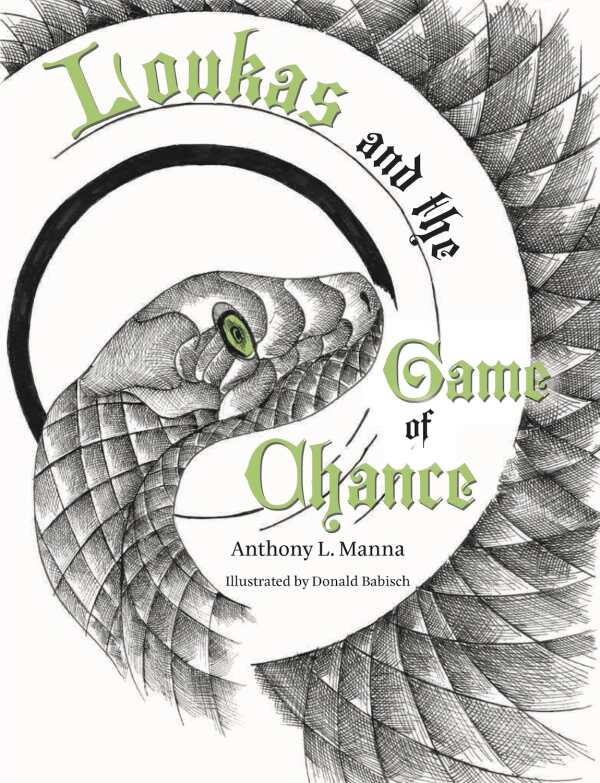Loukas and the Game of Chance
With a goodhearted serpent, a benevolent goddess, and a flawed but determined hero, Loukas and the Game of Chance offers excitement, magic, and, most of all, hope that it is never too late to make things right.
Anthony L. Manna’s folktale fantasy for young readers, Loukas and the Game of Chance, follows the adventures of a hero who’s desperate to regain everything he’s lost.
Loukas lives a simple but good life by the sea, his days filled by his parents’ love and endless sunshine. He has always had a talent for music, but has never realized its full potential. Then he meets a magic snake, Lambrous, who dances to his tunes and leaves gold coins in return.
Suddenly, Loukas is rich beyond his wildest dreams. He has all he could ever ask for: a beautiful wife and children, a house for his parents, and a flourishing farm. But not everyone is pleased with his success. When Loukas gives in to a moment of pride and gambles everything he loves away to a jealous merchant, he’s forced on a desperate and treacherous quest to find Destiny herself and beg for redemption.
Though following a typical hero’s journey arc—with a blessing, a loss, a quest, and redemption—the book’s adventures and dangers are atypical enough to hold attention. Bizarre characters, including the Keeper of the Forest and an angry water giant, add to its fantastical charm. Descriptions are bold, and settings and features, from Loukas’s quiet village to Destiny’s brilliant robes, pop. Scattered ink drawings are also meticulously detailed, with swirls of motion; they are haunting to the point that they belie the text’s bright descriptions. Their lack of color adds to their different aesthetic.
Its syntax age-appropriate, utilizing shorter sentences and paragraphs, the book’s telling is part of its charm. Advanced diction, including “zenith” and “vermilion,” is included without context clues.
In its own quest to produce a moral, the book attempts to caution against the consequences of selfishness; it falls short of teaching personal responsibility. While Loukas realizes that his gamble has resulted in the loss of everything he values, he only expresses regret because of how he has been affected; he never seems to grasp that his selfishness has harmed his family as well, or that his duty is to more than himself.
Friendship is a better developed theme. The relationship between Loukas and Lambrous plays a key role in teaching Loukas the importance of putting others before oneself. Their friendship is sweet, and both characters benefit from the other’s kindness. Lambrous’s old age is soothed by Loukas’s moving melodies, and Loukas is able to care for his family with the gold that the snake leaves. Even after Lambrous passes, the kindness that Loukas showed him continues to reap rewards, illustrating the idea that no good deed is ever too small to matter.
With a goodhearted serpent, a benevolent goddess, and a flawed but determined hero, Loukas and the Game of Chance offers excitement, magic, and, most of all, hope that it is never too late to make things right.
Reviewed by
Vivian Turnbull
Disclosure: This article is not an endorsement, but a review. The publisher of this book provided free copies of the book and paid a small fee to have their book reviewed by a professional reviewer. Foreword Reviews and Clarion Reviews make no guarantee that the publisher will receive a positive review. Foreword Magazine, Inc. is disclosing this in accordance with the Federal Trade Commission’s 16 CFR, Part 255.

